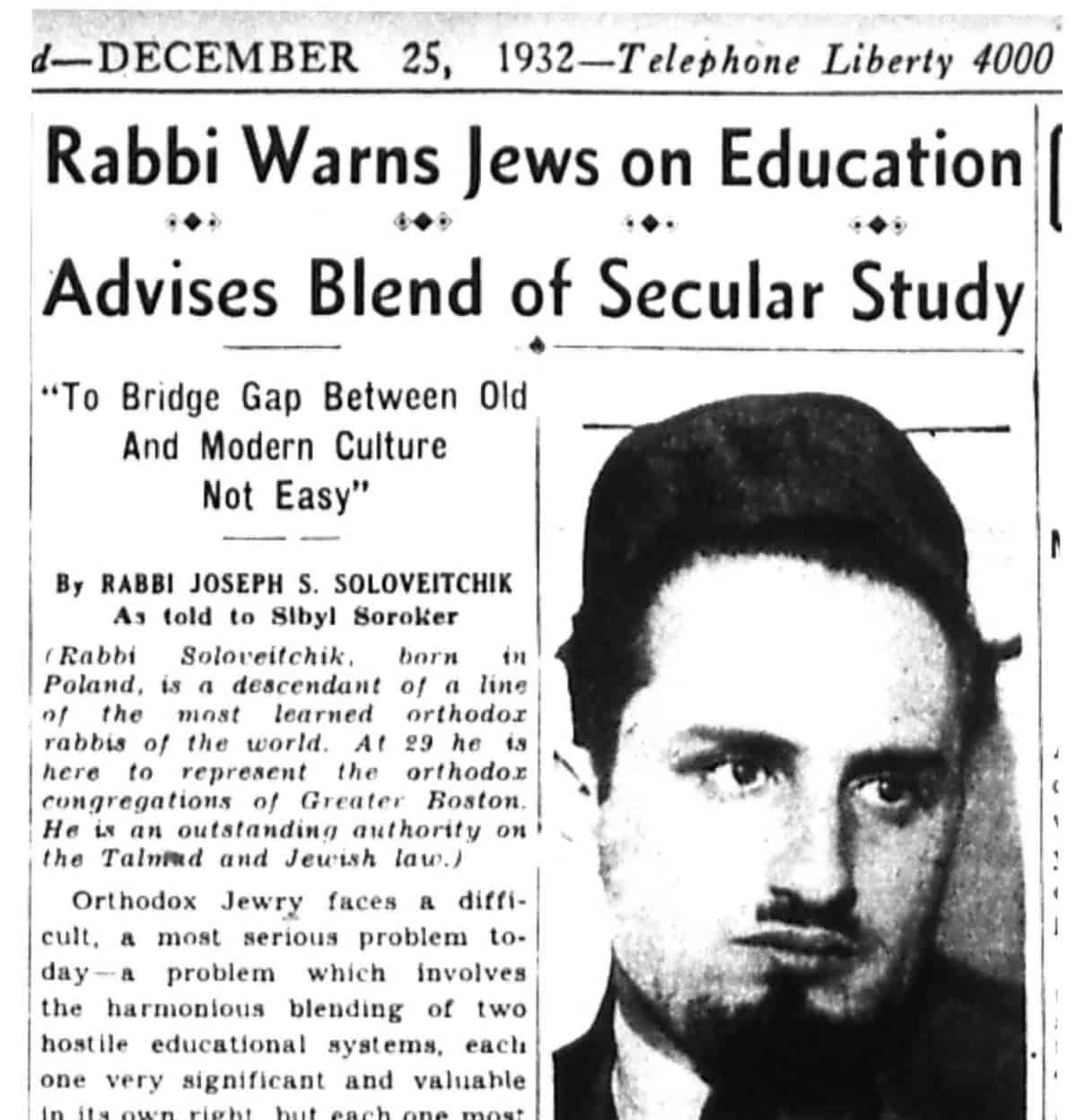Confronting God on Tishah Be-Av in Yehudah ha-Levi’s Yom Akhpi Hikhbadti
Yosef Lindell examines how Yehudah ha-Levi's kinnah about the bubbling blood of Zechariah modifies the story found in Talmudic sources and thus tackles the question of theodicy.
On Building a Better World: The Tension in Jewish Thought between Yeridat ha-Dorot and...
Tamar Ron Marvin argues for the importance of recognizing a Jewish idea of Aliyat Ha-Dorot.
Confronting Biblical Criticism: A Review Essay
Marc B. Shapiro reviews a new edited volume by Yoram Hazony, Gil Student, and Alex Sztuden that offers a traditional defense of revelation in light of modern biblical criticism.
The Arrival of Rabbi Soloveitchik in America: A Documentary Report
Yisrael Kashkin and Jeffrey Saks provide a timeline for the Rav's American arrival.
Of Sages, Prophets, and Politics from the Pulpit
Jason Herman examines whether or not rabbis should talk politics in shul.
The OU Paper: Three Lenses
Elli Fischer contributes to the Lehrhaus Symposium on the recent OU statement regarding female clergy.
Get Your Hashkafa Out of My Chumash!
Yaakov Jaffe provides an ideological argument against including ideology in our Chumashim.
Man vs. Prophecy? A New Look at the Classic Discussion of Predetermination in the...
The Mei Ha-Shiloah’s statements on predetermination pose a theological challenge to foundational Jewish doctrines. In an analysis weaving together several Torah narratives and Izhbitzer commentaries, Reuven Boshnack proposes an empowering interpretation of the Mei Ha-Shiloah.
Corona and Seder-ing Alone
How was the original Seder experienced, and how do we constitute a Jewish collective? Joel Levy and Leon Wiener-Dow argue that the collective must begin with the independent-minded individual.
First Fruits (Bikkurim) and the Talmudic View of Capital: An Essai in the Philosophy...
Bezalel Naor explains what is philosophical about the erstwhile halakhic observances of the Shavuot holiday.



















 Site Operations and Technology by The Berman Consulting Group.
Site Operations and Technology by The Berman Consulting Group.